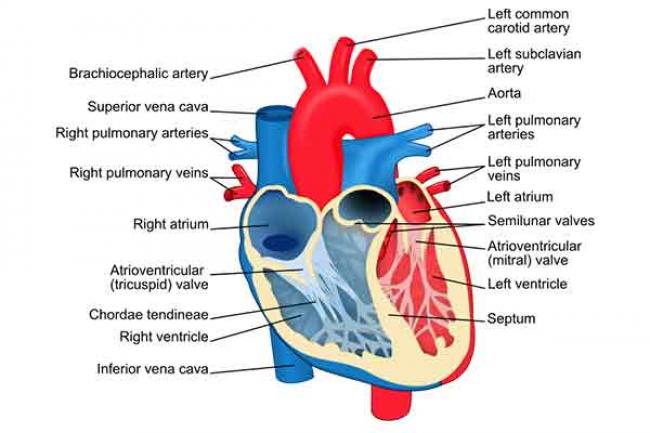Just Earth News 29 Oct 2016, 03:34 am Print

wikipedia commons
The connections between resting heart rate, blood pressure and psychiatric disorders were studied using register data from more than one million Swedish men. The study was published in the journal JAMA Psychiatry.
Many mental health disorders have been found to be associated with abnormalities in heart function and blood pressure.
Heart rate and blood pressure are regulated by the autonomic nervous system which controls the body's basic functions.
There has previously been no comprehensive research on whether discrepancies in the function of the autonomic nervous system could precede the onset of psychiatric illnesses.
The research used heart rate and blood pressure measurements from conscripts for the Swedish army, linked with information from national patient registers.
The results indicate that men whose resting heart rate was higher than 82 beats per minute during their youth were 69% more likely to later be diagnosed with obsessive-compulsive disorder than men whose resting heart rate was lower than 62 bpm.
The risk for schizophrenia increased by 21% and for anxiety disorders, 18%.
The study considered several factors that could contribute to the connection, such as BMI, socioeconomic status, ethnic background, cognitive ability as well as physical fitness measured through an exercise test.
However, these factors did not fully account for the correlation between psychiatric disorders and heart rate or blood pressure. The average follow-up period was 32 years.
The study also shows that low resting heart rate was linked to an increased risk of substance abuse and convictions for violent crimes.
“These results are interesting, because they provide new information on the role of the autonomic nervous system in psychiatric disorders,” explains University of Helsinki postdoctoral researcher Antti Latvala, who led the project.
Latvala points out that the mechanisms underlying this connection still require a great deal of further study.
“Our observations indicate that differences in physiological responses, such as stress reactions, are linked to the risk of mental disorders. It is also known that psychiatric illnesses are associated with an increased risk for cardiovascular disease. Our results open new opportunities for studying this connection as well,” Latvala says.
- Alarming projection: Global breast cancer cases could cross 3.5 million by 2050, shows study
- Exam stress to emotional distress: Study reveals the dark side of academic pressure
- Vegetarian diet linked to lower risk of five major cancers, study finds
- Ukraine’s health system under fire: Attacks spike 20% in 2025, WHO warns
- A dog’s loving lick turned deadly — She woke up without her limbs





-1763561110.jpg)
